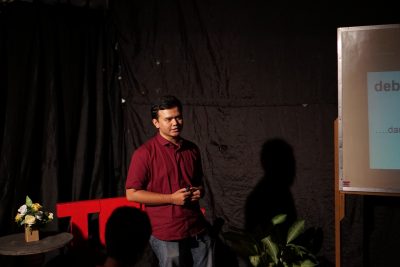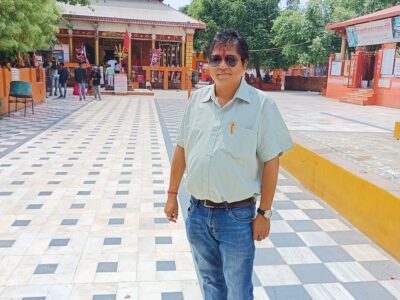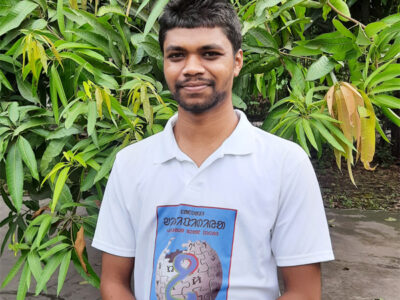
Photo of Ramzy Muliawan
As part of a new social media campaign to celebrate linguistic diversity online throughout Asia, every week a different language activist and advocate will be taking turns managing the @AsiaLangsOnline Twitter account to share their experiences with the revitalization and promotion of their native languages. This campaign is a collaboration between Rising Voices, the Digital Empowerment Foundation, and the O Foundation.
Each week, the upcoming host will answer several questions about their background and will give a brief overview of their language. This Q&A is with Ramzy Muliawam (@muliawanramzy) who will provide a sneak preview of what he will be discussing during his week as host.
Rising Voices: Please tell us about yourself.
My name is Ramzy Muliawan. I have been involved with the Wikimedia movement since 2007. I primarily contribute for the Indonesian and Minangkabau Wikipedia, as well as the Wikimedia community in Padang. My interests varies, but I write a lot about politics, history, law, and football. Currently, I study Law at Universitas Andalas in Padang.
RV: What is the current status of your language on the internet and offline?
Minangkabau language is primarily an oral language with limited written tradition. As a major branch of the Malay language, it was previously written in the Jawi script before the arrival of modern Latin script. Despite the Latinization, there has been no widespread effort to actually write in the Minangkabau language; in real life, a condition of diglossia exists between Minangkabau and Indonesian, and literature remains in a scarcely oral form. On the Internet, the Minangkabau Wikipedia is one of the first effort to develop a modern writing tradition in Minangkabau, and in the past five years we have seen a hopeful growth of interests towards a more robust written Minangkabau.
RV: On what topics do you plan to focus during the week that you’ll manage the @AsiaLangsOnline Twitter account?
I plan to cover the dilemmas. A lot of Minangkabau people even doubt that one can actually write in that language, and it was one of the first challenges of Minangkabau Wikimedians. I plan cover the various dialects and forms of oral Minangkabau language and how to write it, as well as the history of Minangkabau linguistic and literature tradition. Last but not least, I plan also to focus on the Minangkabau Wikipedia, as well as promoting several other online initiatives that promotes the preservation and development of the language.
RV: What are the main motivations for your digital activism for your language? What are your hopes and dreams for your language?
When I started actively contributing at Minangkabau Wikipedia, I was more or less motivated by curiosity: for a language that is so rich and diverse in its spoken form, how it is almost impossible to write it? I am still most excited about developing a writing tradition for an oral language for the sake of its preservation and livelihood. In the future, I hope that more Minangkabau youths would write in their language; not only about their cultures, food, or customs, but also about all other things in the world.



